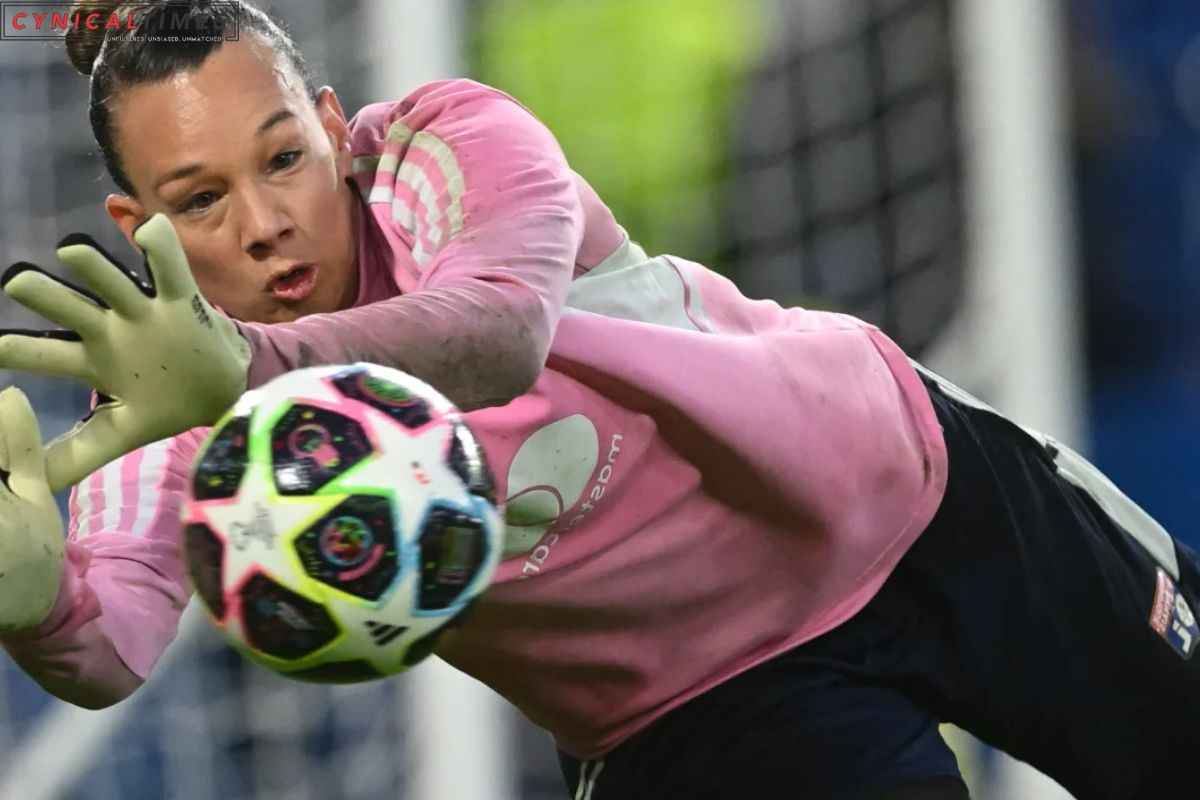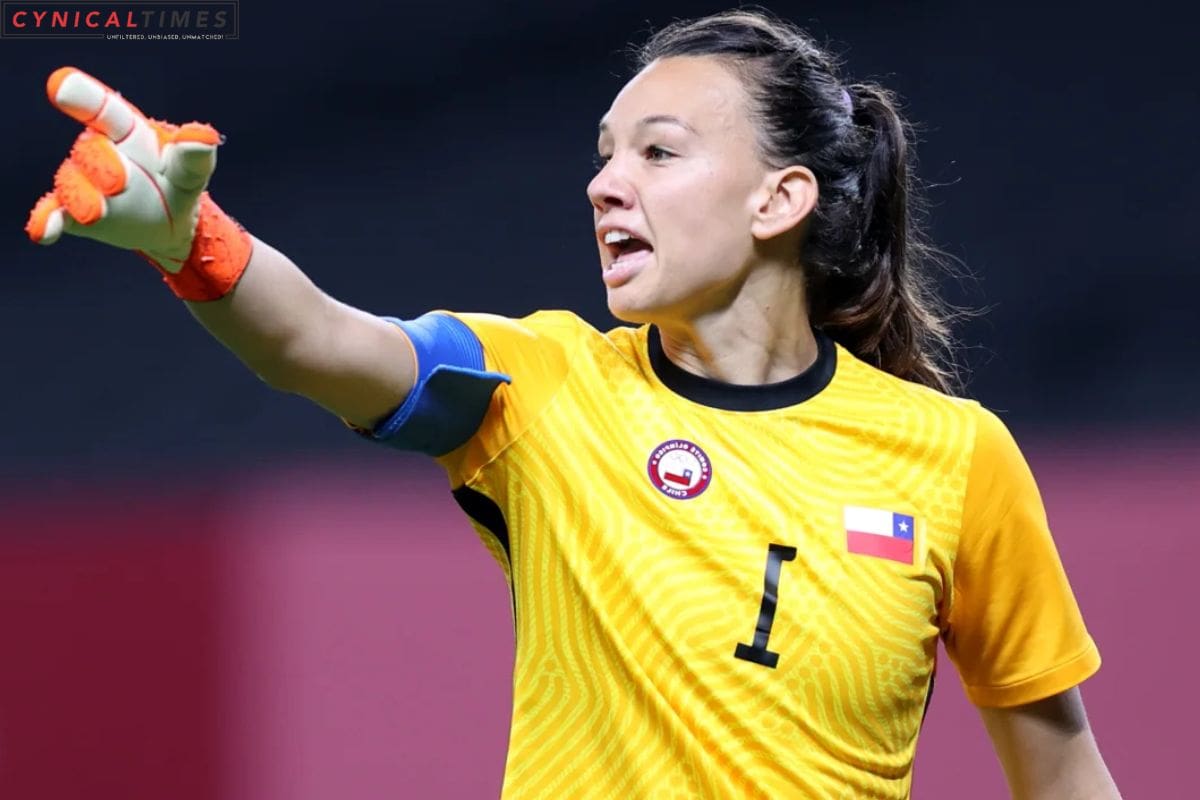Gender Disparity in Sports Recognition: The Chilean Football League (ANFP) has been in the spotlight recently for the wrong reasons. It received criticism for its treatment of Christiane Endler’s 100th appearance for the women’s national team, a significant moment in Chilean football history.
Christiane Endler, a gender norm-defying football player, is renowned for her skills. She is one of Chile’s greatest football players, and her contributions to the sport are immeasurable. Endler is the captain and goalkeeper for Chile’s women’s national team. She has demonstrated ability, leadership, and dedication.
Endler made history on a Tuesday by earning her 100th cap for the national team. With this achievement, she joins top football players. It was historic for Endler and her fans when Chile beat New Zealand 2-1.
The party turned into an argument, putting the ANFP on the back foot. The football federation agreed that the friendly game would not be open to the public. This meant the historic event lacked fan excitement and support, and the Chilean people needed to be aware of it. They missed honouring a famous athlete.
Edgar Merino, Endler’s representative, spoke for many others in saying that Endler deserved greater recognition. He said ANFP President Pablo Milad and his team should have planned and dealt with the problem better. He believed Endler’s 100th match should have been in front of fans to showcase her athleticism.
Milad defended himself, citing reasons for the closed-door match. Some reasons for the expected small crowd were the consecutive games against the same opponent, midweek scheduling, and previous difficulty in selling tickets for the first friendly.
Fans were unhappy with this explanation as they felt it didn’t do justice to a significant moment in Chilean football. The problem worsened when the game wasn’t televised, so Chileans couldn’t witness their sports hero’s historic moment.
The issue is exacerbated by the contrasting recognition of female and male football players in similar scenarios. Claudio Bravo leads and plays as goalkeeper for Chile’s national team. When he got 100 caps for his country, he was honoured with a big party. In a crowded Estadio Nacional, he received a framed shirt with the number 100. This shows the unequal treatment of male and female players.
Endler hasn’t shared much despite fans’ evident distress. She was upset with the first friendly game against New Zealand but hasn’t commented on her 100th appearance.
As a top goalkeeper, Christiane Endler’s rise to fame has been incredible. She won the prestigious prize in 2021 and has consistently been in the top three in the Best FIFA Women’s Goalkeeper competition. In 2017, joining Paris Saint-Germain transformed her career significantly. She ended Lyon’s 14-year reign of terror there in the French league championship race. Only four goals were scored against her, highlighting her hard work throughout the season.


ALSO READ: Riley Gaines transgender athlete protest: Confronts Hostility Amidst Women’s Sports Debate
Endler’s success continued in Lyon. She won two league titles and, in 2022, the Champions League trophy, becoming the first Chilean woman to do so. Chile and its football society are proud of her achievements.
Endler’s success story is a testament to her perseverance and willpower in a place where women’s football is often overlooked. Chile’s women’s team left FIFA’s rankings in 2016 due to inactivity. Despite some progress, such as hosting the 2018 Copa America Femenina and qualifying for the 2019 Women’s World Cup, recent events indicate a negative trend for Chilean women’s football.
Women’s football in Chile is struggling due to losing a playoff to Haiti and failing to qualify for the 2023 World Cup. A league game stopped due to no ambulance, and women’s clubs broke safety rules. Despite President Gabriel Boric’s law making women’s football a profession in Chile, numerous teams disregard fundamental regulations. This raises questions about female player treatment.
Ultimately, Christiane Endler’s 100th game for Chile’s women’s national team should have been a big event to celebrate her career. Still, fans were upset that the game would be played without spectators and not televised. This highlights women’s football challenges in Chile and globally to receive equal support, recognition, and respect as men’s football.
Our Reader’s Queries
What are the gender disparities in professional sports?
Professional female athletes are often paid significantly less than their male counterparts, with the extent of the pay gap varying depending on the sport. Tennis is one of the more promising examples, with female athletes earning an average of 84% of what their male counterparts make. Unfortunately, women’s sports receive a mere 0.4% of total corporate sponsorships, highlighting the ongoing struggle for gender equality in the world of athletics.
What is an example of gender bias in sport?
Discrimination occurs when a sports team denies a woman the opportunity to coach their team or when a sports club fails to provide equal access to sporting equipment for both men’s and women’s football teams. Such actions are unacceptable and violate the principles of fairness and equality. It is important to recognize and address discrimination in all forms to ensure that everyone has an equal chance to participate and succeed in sports.
What is an example of unequal pay between genders in sports?
Male athletes in basketball, golf, soccer, baseball, and tennis receive significantly higher pay than their female counterparts, whether in the form of salaries or individual prize money. The pay gap ranges from 15% to almost 100%, highlighting the stark inequality that exists in the world of professional sports. This disparity is a cause for concern and calls for urgent action to ensure that female athletes receive the same recognition and compensation as their male counterparts.
What are the barriers to gender equality in sport?
One of the major challenges faced by organizations is the decreasing participation of girls and women in sports. This is due to the limited opportunities available that cater to their specific needs and interests. Additionally, access to quality coaching, training, equipment, and facilities that cater to their abilities and skill levels is also limited. These hurdles need to be addressed to encourage more girls and women to participate in sports.

